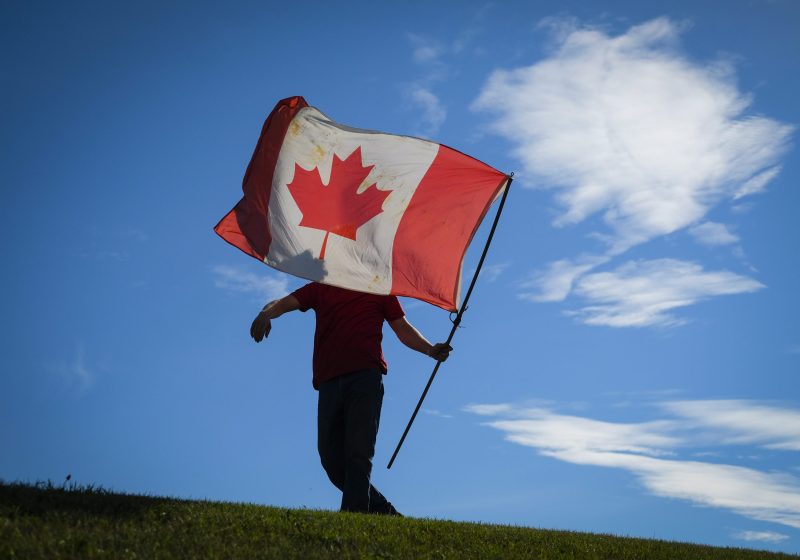
Judge says flipping the bird is the right of ‘every red-blooded Canadian’
The Canadian neighbors had developed a distaste for each other after arguing for months, but an interaction in May 2021 upped the ante.
As Michael Naccache watched Neall Epstein walk by his house, Naccache held up a drill and cursed at Epstein, according to court records. In response, Epstein flashed his middle fingers and swung his right arm in a dismissive manner, which Naccache believed was a throat-slashing gesture, the documents state.
When Epstein returned home from his long walk, police officers were waiting for him. They arrested him and charged him with criminal harassment and uttering death threats.
Epstein’s charges were recently reviewed in the Court of Quebec, where Judge Dennis Galiatsatos denounced the allegations as “petty neighbourhood trivialities.” He dismissed the charges last month, calling the fact that police intervened an “injustice.”
“To be abundantly clear, it is not a crime to give someone the finger,” Galiatsatos wrote in the decision. “Flipping the proverbial bird is a God-given, Charter enshrined right that belongs to every red-blooded Canadian.”
Audrey Roy-Cloutier, a spokeswoman for Quebec’s prosecution service, said in a statement to The Washington Post that the office won’t appeal the decision “even though we disagree with some of the statement’s findings.”
Epstein’s attorney, Joalie Jenkins, said in a statement that her client is “happy with the outcome.”
The back and forth between Epstein and Naccache occurred between March and May of 2021. At the heart of the months-long tension, according to the judge’s decision, was Naccache’s disapproval of neighborhood children and families — including Epstein’s — playing, walking or gathering in the street, particularly because of the ongoing pandemic.
On May 18, 2021, Naccache testified that he heard a noise while using a handheld jackhammer during home renovations. Epstein said Naccache called him “crazy” and cursed at him, which prompted him to curse back, court documents state.
Epstein then gave Naccache the finger with both hands before making the gesture with his arm. Naccache testified that he believed Epstein made a throat-slashing gesture and a punching motion with his hand, while Epstein said he flicked his arm more casually, as if to say “leave me alone.”
Naccache, who said his life felt threatened, called the police. Epstein cooperated with officials and provided a voluntary statement, according to court documents.
While reviewing video footage of the event, Galiatsatos wrote in his decision that there was no evidence to support Naccache’s claims that he feared for his life.
“On what basis did he fear that Mr. Epstein was a potential murderer?” Galiatsatos wrote. “The fact that he went for quiet walks with his kids? The fact that he socialized with the other young parents on the street? If that is the standard, we should all fear that our neighbours are killers in waiting.”
The legality of flipping someone off has long been debated. In 2019, a U.S. Court of Appeals judge ruled a raised middle finger was a form of free speech. But that same year, a North Carolina court ruled in favor of a state trooper who charged a driver who’d flipped him the bird. This month, a Delaware man sued police after he received a citation for pointing the middle finger toward officials.
In this case, Galiatsatos ruled that first responders like police face more important issues than neighbors trading insults.
“It is deplorable that the complainants have weaponized the criminal justice system in an attempt to exert revenge on an innocent man for some perceived slights that are, at best, trivial peeves,” Galiatsatos wrote.
Near the end his written ruling, Galiatsatos said he wished he could throw the case’s files out of a window to express his bewilderment at Epstein’s charges.
“Alas, the courtrooms of the Montreal courthouse do not have windows,” he wrote. “A mere verdict of acquittal will have to suffice.”
